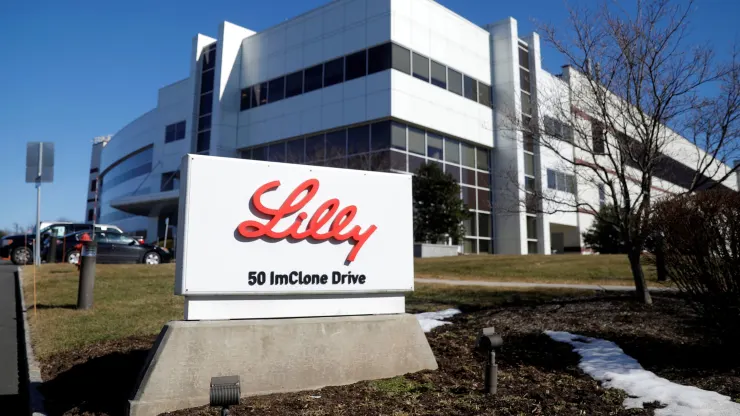Eli Lilly has reached new heights thanks to the soaring demand for its diabetes treatment Mounjaro and the newly launched obesity drug Zepbound. Outgoing Chief Financial Officer Anat Ashkenazi, set to join Alphabet as CFO on July 31, has played a crucial role in managing the revenue surge and investor optimism. Ashkenazi, who became Eli Lilly’s CFO in 2021 after two decades with the company, was recognized on CNBC’s inaugural Changemakers list earlier this year.
The company has faced challenges, particularly in meeting the unprecedented demand for its treatments, leading to nationwide shortages. Mounjaro and Zepbound are part of a drug class called GLP-1 agonists, which help regulate appetite and blood sugar. Analysts predict the market for these drugs could be worth $100 billion by the decade’s end.
Eli Lilly’s revenue boom has enabled significant investments in scaling up manufacturing. The company is funneling cash flow back into the business to expand its manufacturing capabilities. Despite this, Eli Lilly does not expect to fully meet the pace of demand until after 2025. The company is making progress, with several manufacturing sites under construction or ramping up, including two in North Carolina, two in Indiana, one in Ireland, and one in Germany. Recently, Eli Lilly acquired a seventh site from Nexus Pharmaceuticals and announced an additional $5.3 billion investment in its Lebanon, Indiana plant.
Since 2020, Eli Lilly has spent over $18 billion to build, expand, and purchase manufacturing plants in the U.S. and Europe. These expansions aim to address the supply shortages and meet the growing demand for their treatments.
Ashkenazi also highlighted the challenge of limited insurance coverage for weight loss drugs in the U.S. Some employers and health plans are hesitant to cover GLP-1s due to their high costs and concerns about the duration of treatment. However, coverage of Zepbound by U.S. commercial insurers is improving, with about 67% coverage as of April 1. Eli Lilly continues to work on increasing access for the remaining patients.
Additionally, Eli Lilly is advocating for increased coverage of weight loss drugs under Medicare. The company is studying tirzepatide, the active ingredient in Zepbound and Mounjaro, for its effectiveness in treating various obesity-related conditions such as fatty liver disease, sleep apnea, chronic kidney disease, and heart failure. New Medicare Part D guidelines issued in March allow for coverage of obesity treatments with additional health benefits.
Ashkenazi emphasized the need to change the perception of obesity from a lifestyle choice to a chronic disease that requires proper treatment. Eli Lilly aims to ensure that society, the healthcare system, and patients recognize obesity as a chronic condition deserving of medical intervention.
READ MORE:
